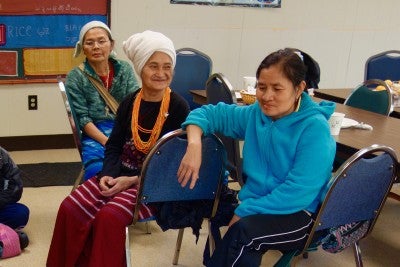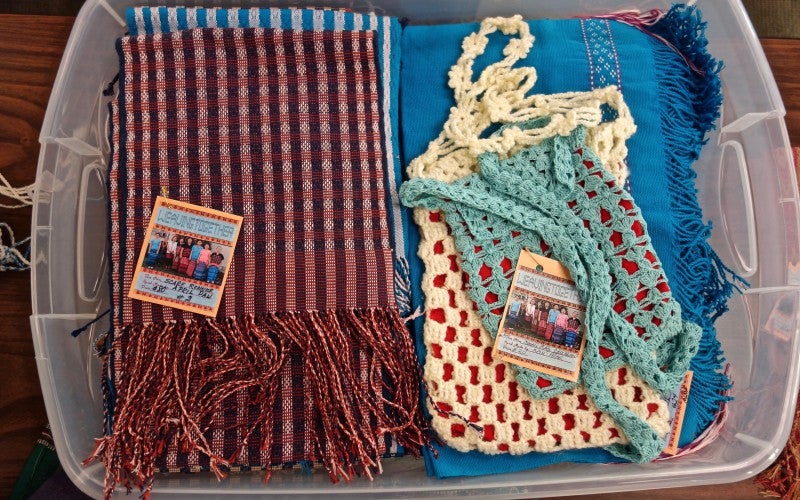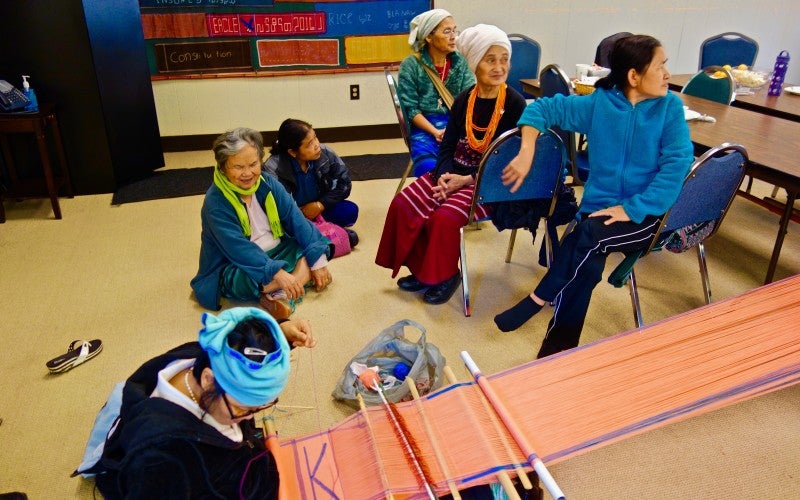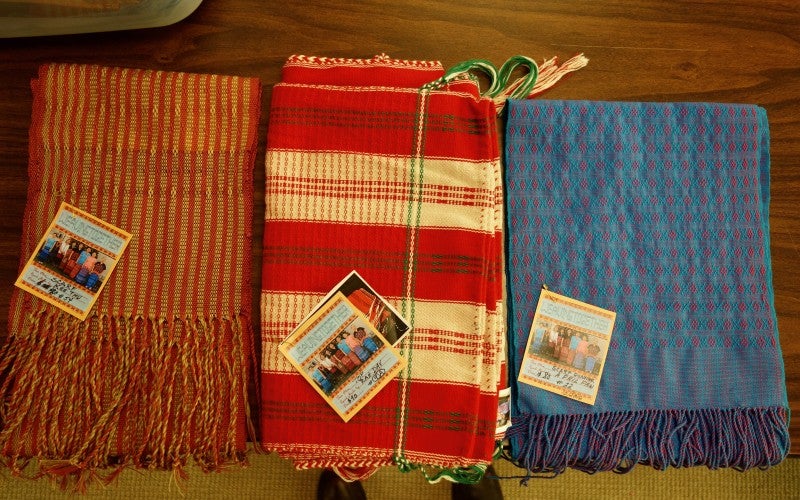“Weaving Together—The Karen Women of Portland” (Portland) is a group of refugee women weavers from the eastern border regions of Myanmar (formerly Burma). As young children, these Karen women learned to weave on backstrap looms. The Karen Women of Portland find that this traditional activity provides a source of income and helps them adapt to their lives in Oregon.
Bio
“Weaving Together—The Karen Women of Portland” is a group of refugee women weavers from eastern Myanmar (formerly Burma), along the Thailand/Burma border region of Southeast Asia. They are each of Karen (“kah-ren”) heritage, one of the many ethnic groups of the region. The women all learned to weave from their mothers and grandmothers. Years of internal conflicts between the Karen people and the Myanmar government have caused the displacement of hundreds of thousands of this ethnic minority, many of whom were resettled in Portland. As refugees, they arrived with few material possessions, and had to first build new backstrap looms. A back-strap loom—one that is stretched between a strap tied to one’s back and an anchoring object—is made up of a series of sticks or wooden rods with drilled holes through which the warp threads are strung. Weavers create fabric lengths by weaving colorful weft threads over and under warp threads. Because they are relatively simple to construct and portable, it is easy for the women to carry their looms between their homes and the center where they meet to weave and socialize. The group started as part of Lutheran Community Services Northwest’s Portland Pathways to Wellness Program; the art therapist suggested that the women incorporate their traditional craft into their weekly discussions. Out of these gatherings, the Karen weavers organized into a group called “Weaving Together—Karen Women of Portland.” As members of a displaced community who have enduring years of conflicts in their homeland, bringing a traditional piece of culture with them to their new home is important to the group’s members. They weave shirts, bags, and scarves out of cotton. The weavers have a website, appear at public events, and sell their products in shops and online.





